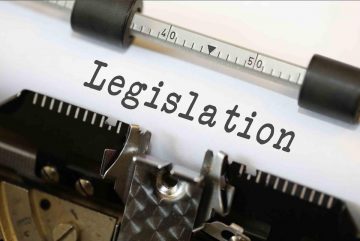In England, and most recently the Republic of Ireland, abortion is offered as a routine part of NHS healthcare. In Northern Ireland however, procuring or performing an abortion remains illegal in almost all cases unless a woman’s life is at risk.
Fatal foetal abnormalities, rape and incest are not circumstances in which abortions can be performed lawfully. Current laws remain rooted in the values of the mid-Victorian era and carry the harshest criminal penalties in Europe – life imprisonment.

Although in saying this, the penalty is almost never imposed, so why does it remain?
“I don’t think it’s actually ever happened since Victorian times” affirms Ian Paisley, a member of the Democratic Unionist Party (DUP), the largest political party in Northern Ireland which maintains an anti-abortion stance.
Ian elaborates further saying “you don’t need laws to show people they’re protected. The fact of the matter is, it keeps in place the position that the ending of a life is a criminal offence and just abandoning it to make people feel good or because they’re claiming it’s an old Victorian law – that isn’t good enough”.
Sinn Fein MLA, Megan Fearon, contests Mr Paisley’s view on the enforcement of the current laws explaining that, “unfortunately it’s not that rare. At the minute, we’ve got women being dragged through the courts. This law that basically governs over our bodies is from the Victorian times and speaks to a wider societal view of how women are treated and viewed”. Sinn Fein are a republican party in Northern Ireland who actively back abortion reform.
Despite their conflicting standpoints, both parties believe that having a referendum on abortion reform, in the shadow of the South had, is not the way forward.
“I think it would be strongly supported but our position is that we shouldn’t have a referendum because these are rights that people should just have”
How are these restrictive laws affecting Northern Irish women?
According to Department of health figures, almost 1,000 women from Northern Ireland were forced to travel overseas to access abortion services in 2017. Undertaking journeys that they often describe as torturous. Just two months ago, Claire Wright (not real name) travelled from Belfast to England to have an abortion.

She was told her baby had anencephaly and had no chance of survival. There came a chilling moment during her journey when she was willing her child’s heart to stop naturally so that she and her husband could go home and begin the grieving process. Although women still travel outside Northern Ireland to access abortion services, an AHRC-funded study found there has been an increase in the amount of abortion pills being illegally bought online for home use.
According to one main online supplier, Women Help Women:
“The pills are medically safe regardless of whether a doctor hands the pills to the woman or she gets them in an envelope”
The only risks are legal risks.
What factors are keeping these laws in place?
There is a mechanism in the NI Assembly called The Petition of Concern (POC) which was introduced following the Good Friday Agreement. The aim of the POC, is to prevent discrimination of one community over another. Emma Gallen, volunteer for Alliance For Choice, an organisation which campaigns for abortion rights in Northern Ireland revealed that “it’s not being used like that.” She believes it is being abused by certain parties and individuals.
Controversially it is being used to block decision making. The DUP, which has deployed the most POC’s has faced the most criticism over their use. Ian Paisley defends the use of the POC in relation to abortion stating “The greatest minority in my view is the unborn child, therefore, it’s a perfectly legitimate process to use.”

Additionally, there are many anti-abortion groups and individuals within Northern Ireland campaigning in support of the legal prohibition and restriction of abortion. Bernadette Smyth, founder of the largest pro-life group in Northern Ireland, Precious Life, states, “there are laws that protect peoples body’s for a reason. Abortion doesn’t protect the body within the other person’s body.”
Northern Ireland’s status as the most religious part of the UK is also a relevant factor. The division that still exists along sectarian lines has strengthened the influence that churches have on the matter of abortion.
What’s next for abortion reform in Northern Ireland?
Labour MP, Diana Johnston’s bill to remove the criminal provisions from the Offences Against the Persons Act 1861 that make abortion illegal, was passed in Westminster in October . However, the Northern Ireland Assembly have not sat since January 2017. Therefore it is very unlikely to become legislation, even when power sharing resumes. According to an Amnesty International poll two-thirds of people in NI feel that Westminster should legislate for abortion reform in the absence of a devolved government.
The poll considered views on where a pregnancy is the result of rape or incest. Stating that eight out of 10 respondents felt that women should have the choice of an abortion in such circumstances. Furthermore, 73% of those polled felt that women should have the choice, if the foetus has a fatal abnormality that is likely to result in death before or shortly after birth.

The Abortion Referendum vote in the Republic of Ireland in May 2018, saw a landslide in favour of repealing the state’s near total ban on terminations. This further highlights the limitations of Northern Irish law. It should help the women of Northern Ireland as Megan Fearon explains, “I met with health minister Simon Harris, who gave me his assurances that women from the North would be able to access terminations in the South”. The only barrier to this is that women would most likely have to pay for these services. “That is something we will be continuing to work on with him to find a way so that women from the north wouldn’t have to pay,” she added.
There now exists an anomaly whereby Northern Ireland is the only place on the island where women cannot access abortion healthcare. While the public may present a majority in favour of reform, it is ultimately down to government to enforce such change. However, the when and how seems uncertain.
For more on A Hard Pill To Swallow Project:


